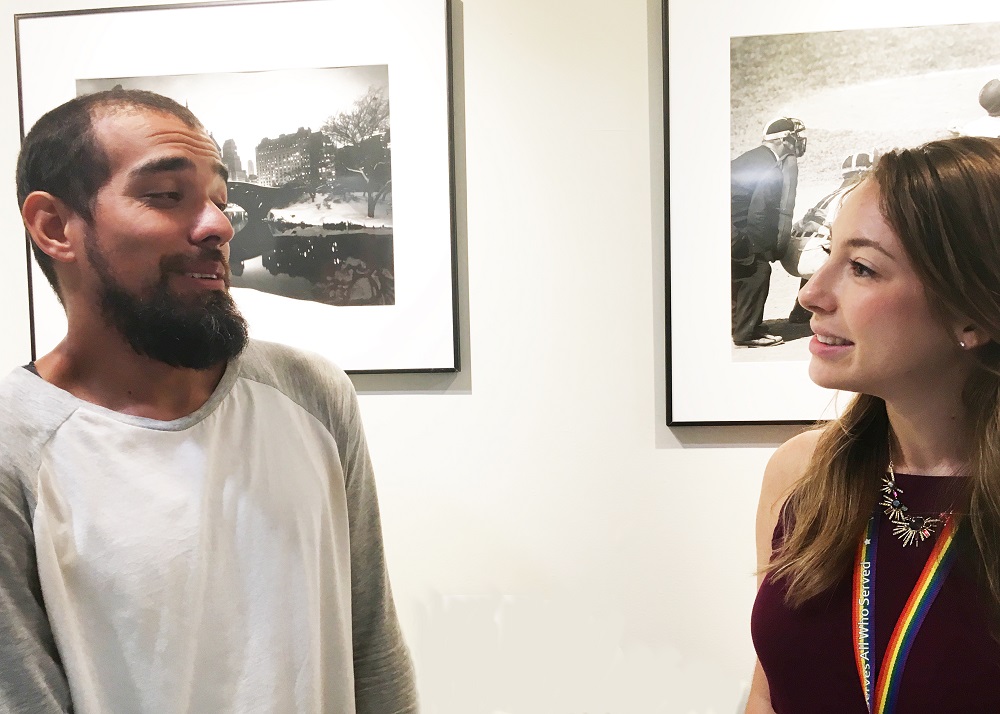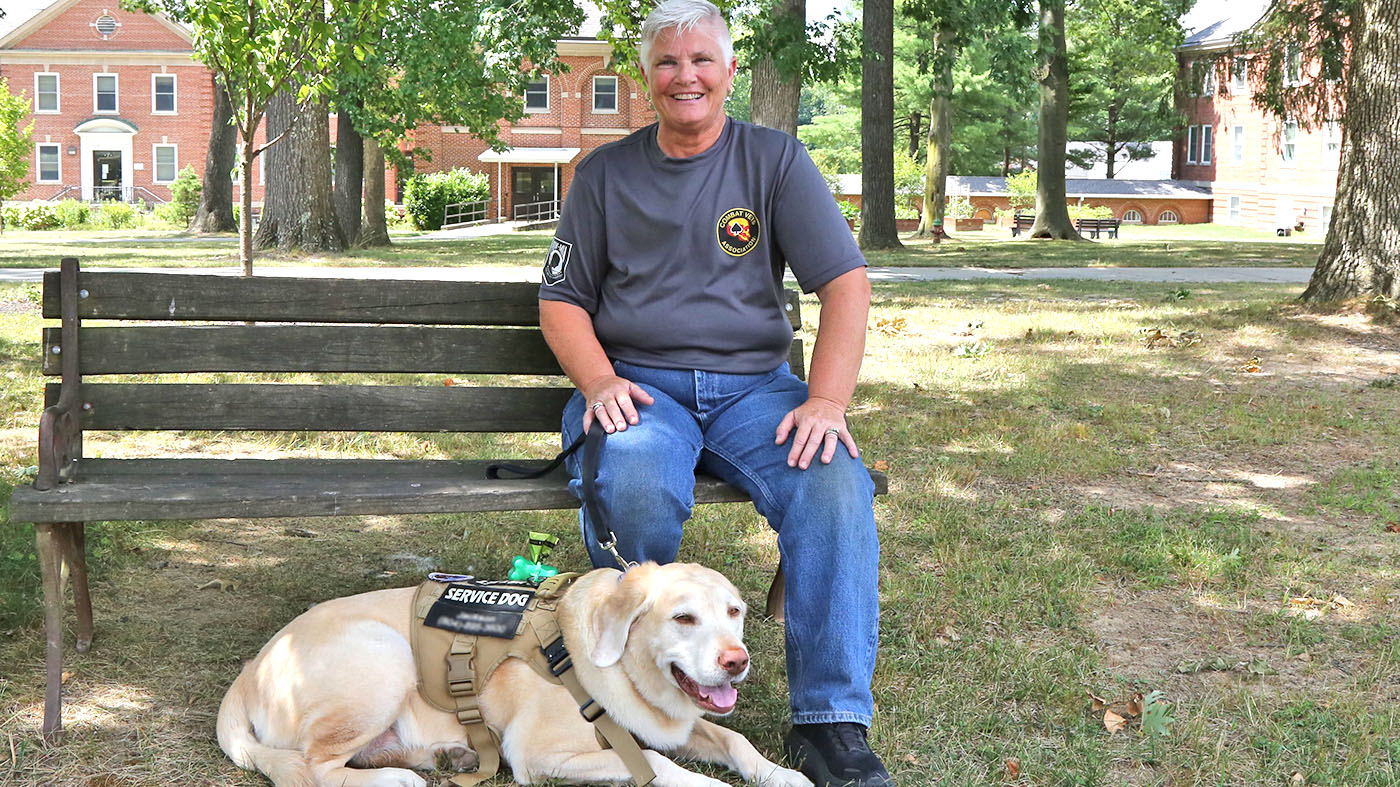No question, for a Veteran back from war, blackouts undermine reintegration and positive communications. Marine Corps Veteran Jose Adames served three tours in Afghanistan and Iraq between 2001 and 2006.
Approaching his 36th birthday, he is open about his struggles not only with blackouts, but with other physical and psychological symptoms of his PTSD and Traumatic Brain Injury. Life seemed bleak and frustrating at almost every turn until, about a year ago, when he started working with Psychology Fellow Dr. Lisa Gettings (pictured above with Adames). They approached his issues with Cognitive Processing Therapy.
As Dr. Gettings and Veteran Adames describe the 12-session therapy, treatment begins with the Veteran describing in writing a particularly traumatic event that causes ongoing anxiety. The next part of the process requires defining a step by step route to investigate the Veteran’s beliefs about the event and bottled up emotions in depth. Engaging in this process is “very, very hard,” says Adames. But, he says the reward is significant. The goal is developing skills to cope with the memories to ensure that they are less invasive and interfere less frequently with daily activities and communications.
A pivotal crisis for Adames occurred while he was a Platoon Sergeant in Iraq, serving as a stinger gunner in recon. Those who serve in this role internalize their responsibility for success of a mission. They feel that they are personally responsible for any casualties. When loss of platoon members occurs, there is no escape from shame and guilt. Adames describes the memories, the traumatic engagement, “always running like a movie in my mind.”
Returning from combat, Veteran Adames would freeze or experience a blackout when memories became too painful. Adames says his worst anxiety attacks and blackouts were triggered by smells and sounds. For Adames, only a connection with Dr. Gettings as a trusted clinician made him open to the possibility of a light at the end of the tunnel. She guided him toward realization and acceptance that the situation may have been unavoidable and outside the possibility of control. “You did the hard work,” responds Dr. Gettings, when Adames expresses how grateful he is that she saw him through.
Looking back on Iraq, Veteran Adames says “Every Marine was on the same page, living day to day to get home. We were surviving.” He and his men were in a convoy delivering food to another base when they got wind of enemy activity. They dismounted the Humvee and proceeded to walk through a canyon. Adames recalls awareness of flash of an IED explosion. Could he have called out to his men to duck earlier? Would ducking have made injuries worse? There is no way of knowing. “Although these questions remain, the treatment helped reduce these feelings of guilt and responsibility,” says Dr. Gettings, “and allowed Jose to let go of the feeling that he had failed his fellow Marines.”
Severely injured by shrapnel from the explosion on the right side of his body, Veteran Adames was transported by helicopter to Baghdad Hospital, transferred to Frankfort Hospital and then flown to Balboa Navy Hospital in San Diego, CA, where he was treated for psychological and physical injuries. He has replayed the ambush and his actions over and over. And, there were many times when he just blacked out because of the way the human mind may protect an individual from experiencing too much mental anguish.
Veteran Adames is smart and earned his BA and MA degrees at Long Island University after completing his military service. He worked at VA’s Brooklyn Campus, helping other Veterans, freelance marketing work and in various warehouse positions. But, always, his problems with anger management and other PTSD symptoms got in the way of working effectively with others. His has a five-year-old son who lives with him and remarkably, his love for his child has been a stabilizing influence and an important reason he wants to recover.
A creative, artistic man, Adames, lives in the Far Rockaway, Queens neighborhood where he grew up. He has always enjoyed wood sculpting. Often, he has carried a small piece of his sculpture with him and reflected on it as a way of deflecting anger or stress. Now with his therapy complete, Veteran Adames has returned to work part-time and is optimistic about producing and marketing sculpture he creates on a 3-D printer and then refines with carving tools and paints. His plan is to exhibit and sell his sculpture via the Internet and at area crafts fairs.
Topics in this story
More Stories
Combat Veteran faces the traumatic events of her PTSD during prolonged exposure therapy and looks forward to the days to come.
Bob Jesse Award celebrates the achievements of a VA employee and a team or department that exemplifies innovative practices within VA.
The Medical Foster Home program offers Veterans an alternative to nursing homes.






